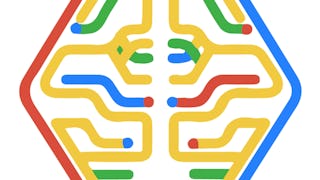In this Machine Learning in Production course, you will build intuition about designing a production ML system end-to-end: project scoping, data needs, modeling strategies, and deployment patterns and technologies. You will learn strategies for addressing common challenges in production like establishing a model baseline, addressing concept drift, and performing error analysis. You’ll follow a framework for developing, deploying, and continuously improving a productionized ML application.


(3,251 reviews)
Recommended experience
What you'll learn
Identify key components of the ML project lifecycle, pipeline & select the best deployment & monitoring patterns for different production scenarios.
Optimize model performance and metrics by prioritizing disproportionately important examples that represent key slices of a dataset.
Solve production challenges regarding structured, unstructured, small, and big data, how label consistency is essential, and how you can improve it.
Skills you'll gain
Details to know

Add to your LinkedIn profile
6 assignments
See how employees at top companies are mastering in-demand skills

There are 3 modules in this course
This week covers a quick introduction to machine learning production systems focusing on their requirements and challenges. Next, the week focuses on deploying production systems and what is needed to do so robustly while facing constantly changing data.
What's included
8 videos3 readings2 assignments1 app item2 ungraded labs
This week is about model strategies and key challenges in model development. It covers error analysis and strategies to work with different data types. It also addresses how to cope with class imbalance and highly skewed data sets.
What's included
16 videos2 readings2 assignments1 ungraded lab
This week is all about working with different data types and ensuring label consistency for classification problems. This leads to establishing a performance baseline for your model and discussing strategies to improve it given your time and resources constraints. This week also includes the final end-to-end project.
What's included
17 videos5 readings2 assignments2 ungraded labs
Earn a career certificate
Add this credential to your LinkedIn profile, resume, or CV. Share it on social media and in your performance review.
Instructor

Offered by
Explore more from Machine Learning


Google Cloud


Duke University


Duke University
Why people choose Coursera for their career




Learner reviews
3,251 reviews
- 5 stars
84.16%
- 4 stars
12.94%
- 3 stars
1.90%
- 2 stars
0.70%
- 1 star
0.27%
Showing 3 of 3251
Reviewed on Jun 4, 2021
really a great course. It'll really change your way of thinking ML in production use and will help you better understand how can you leverage the power of ML in a way that I'll really create a value
Reviewed on Jun 4, 2021
The content of this course has been especially useful for me. I wish there were more emphasis on the tools recommendation as well, but the theoretical knowledge was just fine. Thank you!
Reviewed on May 19, 2021
Excellent course, as always! Many thanks! Great combination of theory + notebooks with practical examples.Everything is perfectly structured. I will recommend this course to everyone!
New to Machine Learning? Start here.

Open new doors with Coursera Plus
Unlimited access to 10,000+ world-class courses, hands-on projects, and job-ready certificate programs - all included in your subscription
Advance your career with an online degree
Earn a degree from world-class universities - 100% online
Join over 3,400 global companies that choose Coursera for Business
Upskill your employees to excel in the digital economy
Frequently asked questions
Machine learning engineering for production refers to the tools, techniques, and practical experiences that transform theoretical ML knowledge into a production-ready skillset.
Effectively deploying machine learning models requires competencies more commonly found in technical fields such as software engineering and DevOps. Machine learning engineering for production combines the foundational concepts of machine learning with the functional expertise of modern software development and engineering roles.
Understanding machine learning and deep learning concepts is essential, but if you’re looking to build an effective AI career, you need production engineering capabilities as well. With machine learning engineering for production, you can turn your knowledge of machine learning into production-ready skills.
The Machine Learning in Production course covers how to conceptualize integrated systems that continuously operate in production as well as solve common challenges unique to the production environment. In striking contrast with standard machine learning modeling, production systems need to handle evolving data. Moreover, the production system must run non-stop at the minimum cost while producing the maximum performance.
In this Machine Learning in Production course, you will build intuition about designing a production ML system end-to-end: project scoping, data needs, modeling strategies, and deployment patterns and technologies. You will learn strategies for addressing common challenges in production like establishing a model baseline, addressing concept drift, and performing error analysis. You’ll follow a framework for developing, deploying, and continuously improving a productionized ML application.
By the end, you will be ready to:
Design an ML production system end-to-end: project scoping, data needs, modeling strategies, and deployment requirements.
Establish a model baseline, address concept drift, and prototype how to develop, deploy, and continuously improve a productionized ML application.
Build data pipelines by gathering, cleaning, and validating datasets.
Implement feature engineering, transformation, and selection with TensorFlow Extended.
Establish data lifecycle by leveraging data lineage and provenance metadata tools and follow data evolution with enterprise data schemas.
Apply techniques to manage modeling resources and best serve offline/online inference requests.
Use analytics to address model fairness, explainability issues, and mitigate bottlenecks.
Deliver deployment pipelines for model serving that require different infrastructures.
Apply best practices and progressive delivery techniques to maintain a continuously operating production system.
More questions
Financial aid available,

